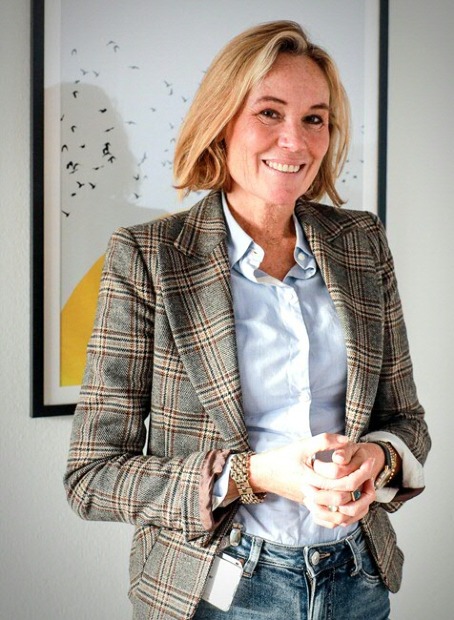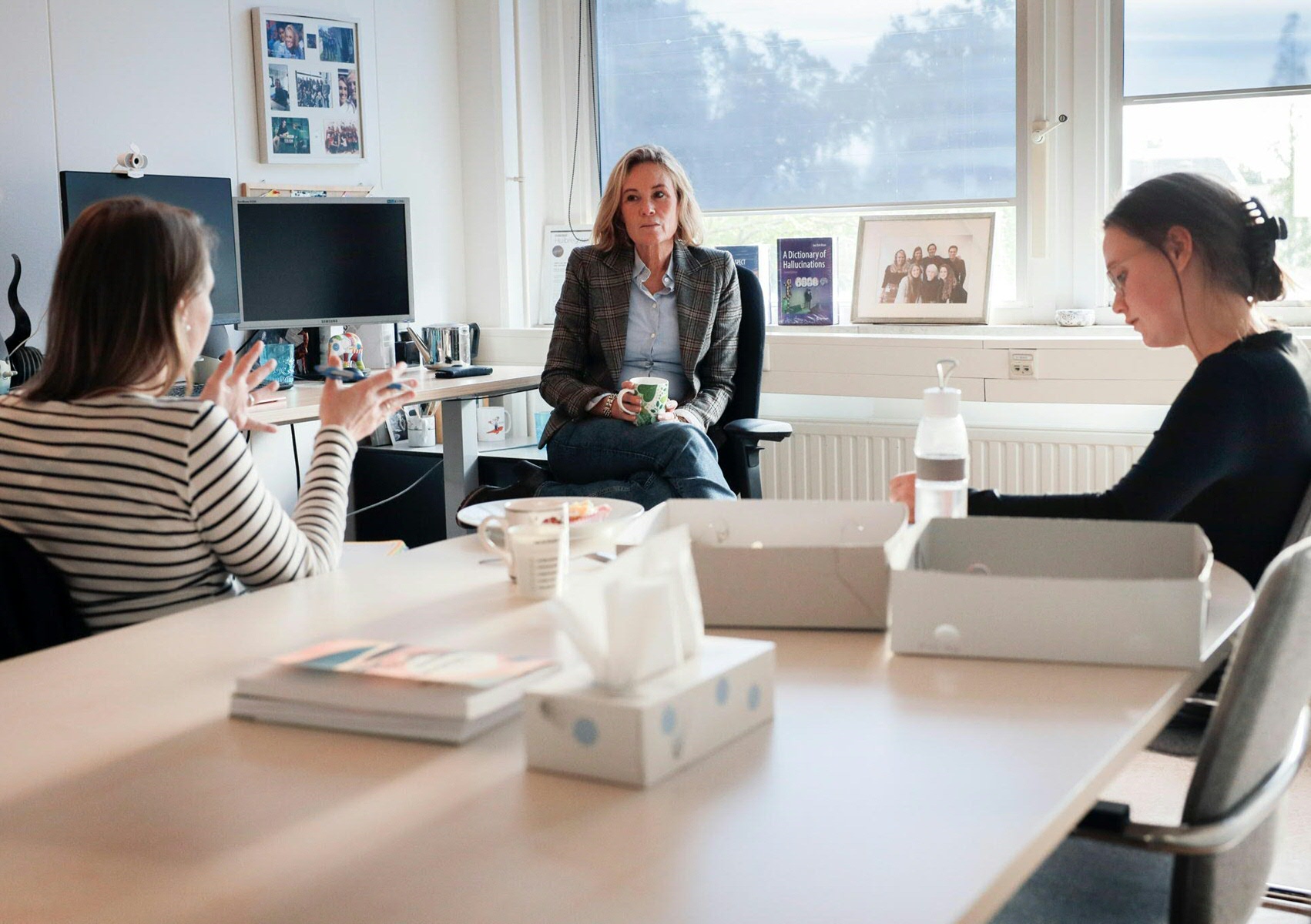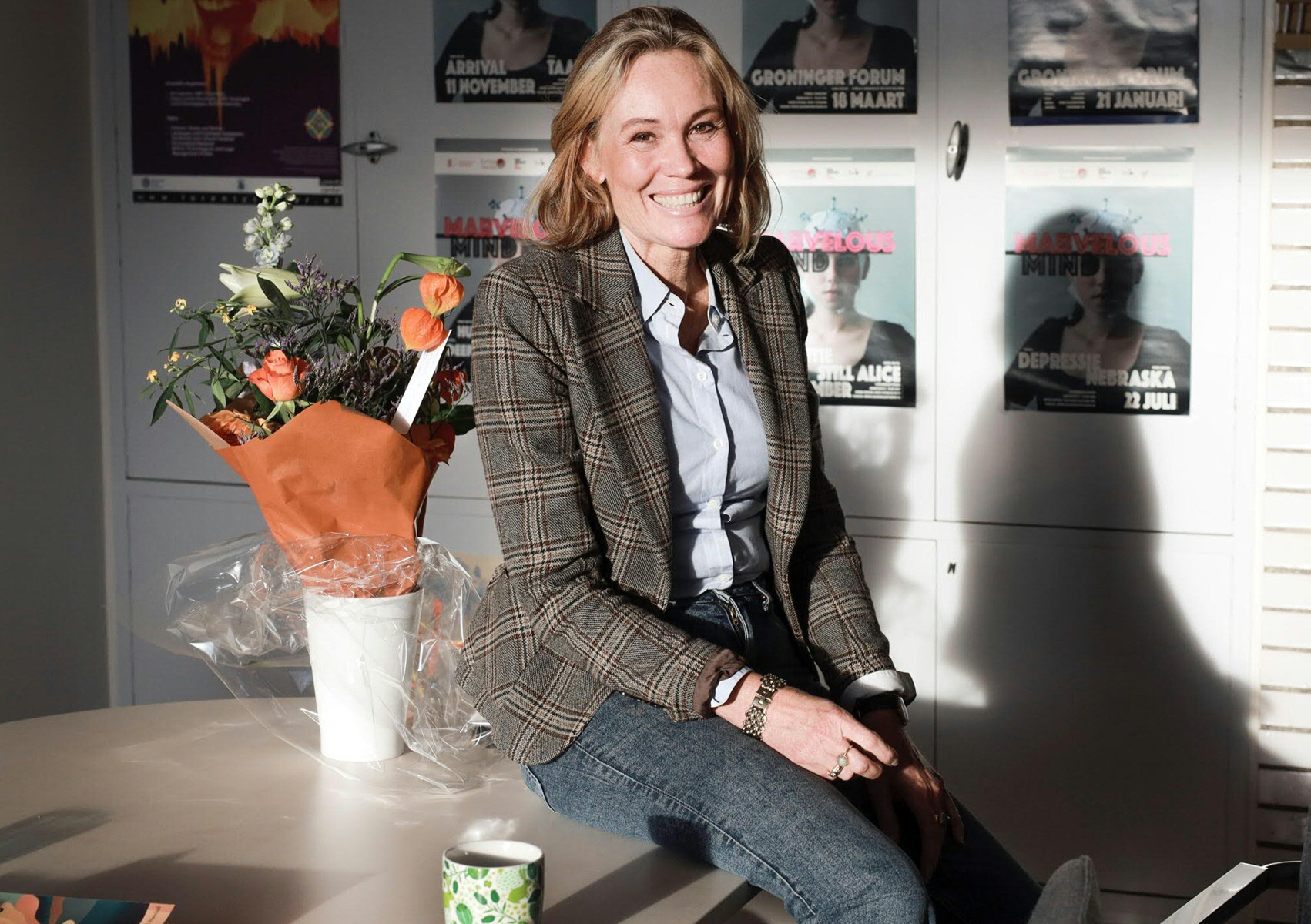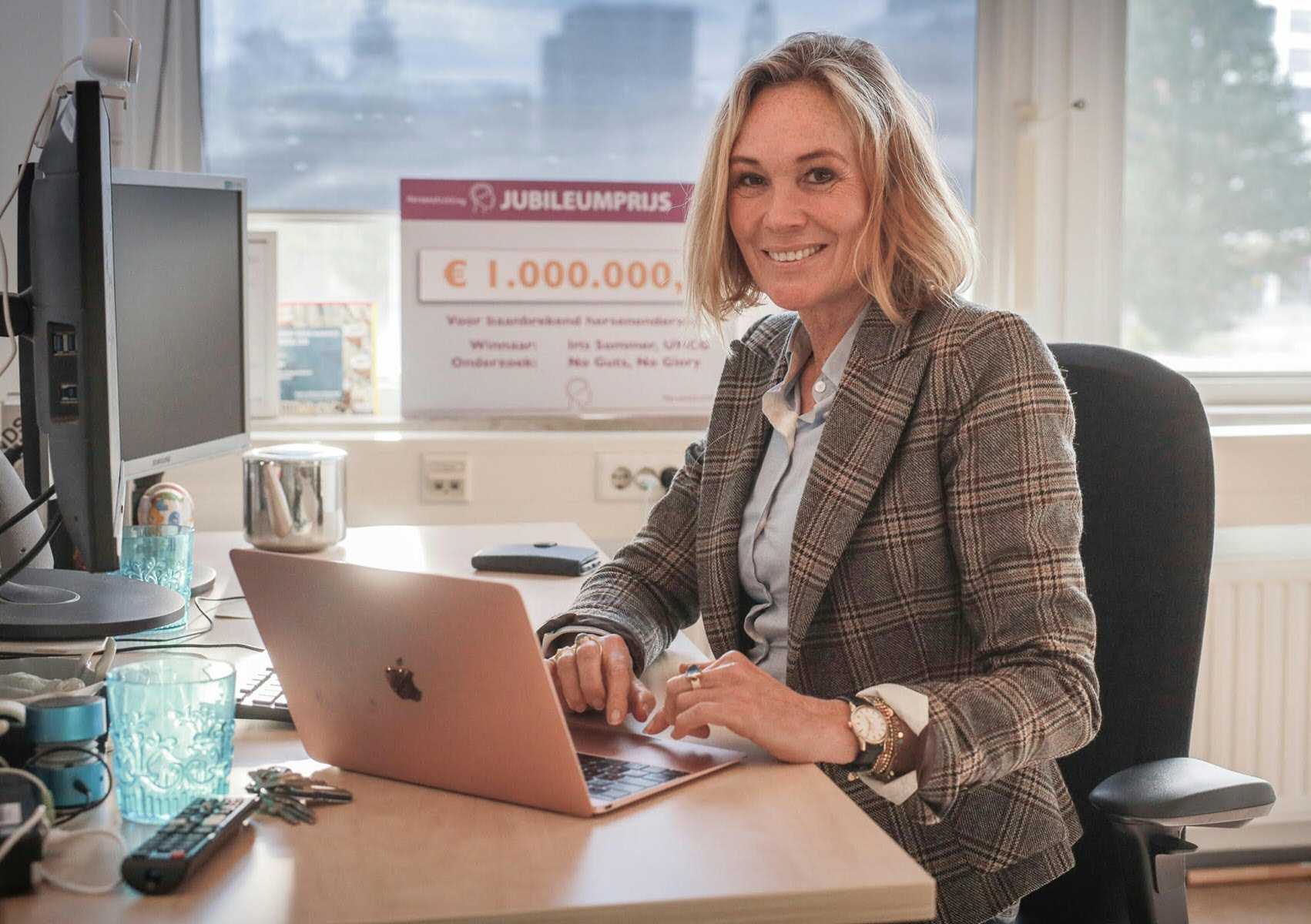Science: more exciting than showbiz

Science often seems very complicated. Most people probably don't really know what researchers do, and what it takes to make a breakthrough. That is why it is important to keep the general public informed of what is happening in science, says Iris Sommer, Professor of Psychiatry at the UMCG: ‘This kind of transparency is essential, also for maintaining society’s trust.’
Text: Hannah de Nobel / Photos: Henk Veenstra
Unknown terrain
Iris Sommer is a practising psychiatrist who has also conducted brain research throughout her career. She finds this combination extremely valuable, because her clinical practice tells her where further research is needed. The brain is such an incredibly complex organ, about which we still know so little. ‘For clinical practice, this means that you sometimes simply don't know, and there is so much suffering with brain disease,’ says Sommer. ‘By having a great research team of talented young people, we can push the boundaries of our understanding, and explore potential new possibilities for helping people.’
Complex research
This process of pushing boundaries is however not a straight line from initial idea to breakthrough. Research, says Sommer, is often more laborious than people might imagine: ‘A research study can sometimes look a lot like a Spanish procession: three steps forward, two steps back.’ A hypothesis may lead to years of research that ultimately turn out to be a dead end, after which the researchers have no choice but to go back to the drawing board. ‘This doesn't mean that the researchers didn't do their job properly, or that they were lying. It simply means that reality is more complex than theory. But if you read about it without any background information, you may wonder: What is going on with scientific research?’ That is why Sommer also devotes a lot of time to public engagement, to give the general public some insight into how science evolves.

Tax payers’ trust
Sommer believes that tax payers have a right to know where their money goes, which is why the complex process of scientific research should be explained clearly. ‘It doesn't really feel like a duty, because I enjoy it so much. But understanding how the process works is also important for society's trust in science.’ That is why it is important that researchers share their process, including setbacks and obstacles. This can help make science that much clearer to the average Dutch person.
To the media
That is why Sommer is devoting so much time to bringing her research to the attention of the general public. She says her enthusiasm for sharing knowledge began quite simply with teaching: ‘If you have to teach an early lecture to a room full of sleepy students, you have to be creative to keep everyone's attention,’ she says. From there, step by step, she started to seek contact with the general public. First via Studium Generale lectures, later at the University of the Netherlands, and from doing podcasts to writing books.

Bringing science to the public
By now, Sommer has an impressive portfolio of media in which she shares her knowledge. For example, she created the popular BNR Podcast ‘In De Diepte’ (In Depth), in which she talks to listeners about the world of the brain. ‘I was asked to write and read out the text myself, so it was a bit like giving a short lecture to interested listeners. I loved it,’ she says. This summer, she also had a chance to experiment with Shitty Science at Lowlands, where she and her team investigated the link between nutrition, gut bacteria, and mental well-being. This was not only a useful way to collect a lot of data (faeces and completed questionnaires from festival goers), but also a moment to talk to interested young people about science. How can healthy nutrition influence your mental health through the bacteria in your gut? Her recently published sixth book, De Bacterie en het Brein (Bacteria and the Brain), goes deeper still into the interaction between nutrition and mental health.
Looking for the middle way
And yet, it is not always easy to communicate a scientific message directly in the media. ‘Some TV programmes just want a simple summary, but that makes it difficult to use the right degree of nuance. TV programmes sometimes only show one or two sentences from an interview. That is not actually very informative,’ says Sommer. There are times when she would want to share her findings with 16 disclaimers, but that is not an attractive message for the radio or TV. It was also something she struggled with when writing her books, she remembers: ‘It was a bit of a thing with the publisher, who simply said it didn't read well. But I still believe that nuance is really important.’ It means that she has to keep looking for a middle way: not too simple, and not too complicated.

More exciting than showbiz
Luckily, this is a challenge that Sommer is happy to take on. Because science needs to have a good image, she says: ‘Some people hear the word ‘science’, and they think: ‘how tiresome!’ But science is not tiresome; it’s great fun!’ She says it is simply a question of presenting science as exciting, interesting news items that appeal to everyone. Just like when she had to keep sleepy students awake in her early morning lectures, Sommer wants to make science gripping and compelling for everyone. To her, this is self-evident. ‘I find the latest science news ten times more fun than showbiz gossip; so let’s replace that with what is happening in science. I think it’s at least as exciting.’
Feedback from patients
So far, it seems to work, based on the feedback Sommer has received from patients who read her books. ‘Of course, it’s great when people say that they found it useful,’ she says. And the most important feedback for her comes from people who suffer from brain disorders themselves, especially in terms of insights on how to proceed with her research. ‘For example on how we can attract more female participants, because we don’t only want to do research on men. I had a lot of help in this from female patients sharing with me how a research study would have to be set up to make it attractive for female participants to join in,’ she explains. In this way, science becomes more and more accessible, and our knowledge more and more comprehensive.
More news
-
17 November 2025
Artificial intelligence in healthcare
-
04 November 2025
AI Factory in Groningen advances digital sovereignty
-
03 November 2025
Menopause in perspective: How the media influences our perception
